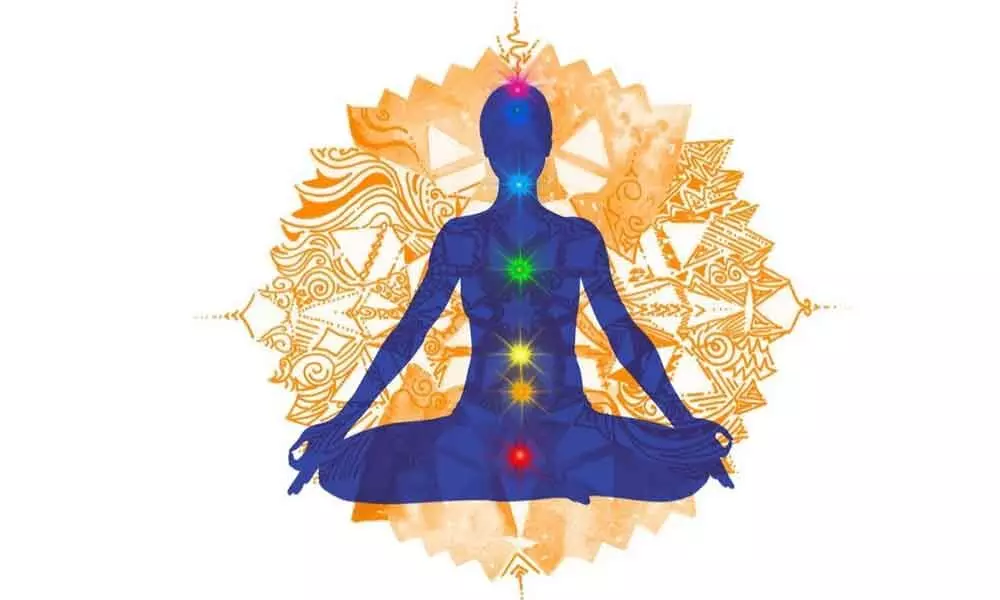Live
- All you need to know about PAN 2.0
- Akasa Air redefines travel experience with industry-first offerings
- MP: Residents stage protests against liquor shop in Indore
- Telugu Actor Shri Tej Booked for Alleged Cheating and False Promise of Marriage in Live-in Relationship
- Toyota Kirloskar Motor Celebrates 1 Lakh Urban Cruiser Hyryder on Indian Road
- MLS: New York City FC part ways with head coach Nick Cushing
- Delhi CM says Centre cutting AAP voters’ names from rolls, BJP hits back
- Hyderabad Metro Rail Phase-II Works to Begin in Old City in January 2025
- Odisha: 668 persons killed in human-elephant conflicts in last three years
- DEFENDER JOURNEYS: TO EMBARK ON ITS THIRD EDITION FROM NOVEMBER 2024
Just In
A look into ancient Indian systems and science


Ancient Indian systems and science were not stand-alone developments. There were some civilizations in the past which thought somewhat identical and evolved similar views.
Ancient Indian systems and science were not stand-alone developments. There were some civilizations in the past which thought somewhat identical and evolved similar views. Just as we do not have our own take on Hinduism, they too do not have their own version of it surviving now. Our knowledge of our past is, mostly, a highly twisted Western version of who we are and what we are. It is they who called us Indo-European speaking people.
Scholars from the period of British colonial rule postulated that this branch of a related group of nomadic and semi nomadic tribal peoples, originally inhabiting the steppe country of southern Russia and Central Asia, brought with them the horse and chariot and the Sanskrit language. Did they see a horse as European in descent?
Britannica goes on to compile that "The same is probably true of some aspects of the ancestor cult. The Rigveda contains many other Indo-European elements, such as ritual sacrifices and the worship of male sky gods, including the old sky god Dyaus, whose name is cognate with those of Zeus of ancient Greece and Jupiter of Rome (Father Jove). The Vedic heaven, the "world of the fathers," resembles the Germanic Valhalla and seems also to be an Indo-European inheritance. The Indo-Iranian element in later Hinduism is chiefly found in the ceremony of initiation, or "second birth" (upanayana), a rite also found in Zoroastrianism. Performed by boys of the three "twice-born" upper classes, it involves the tying of a sacred cord.
Here is where we need to study the Aztec culture. More informed intellectuals like Prof Davies N in his work on the Aztec Empire published by the Oklahoma University Press elaborately explains how the Europeans distorted ancient knowledge, wisdom and history to sustain their supremacy.
Like the Indians the Aztecs had a circular and mythological concept of time and history. A concept that blends myth with history, expressed in terms of cyclical time, a notion that simply treats the present as a reflection of the past. Accordingly, not every event reported in the sources is datable in terms of our calendar; equally not every place-name can be pinpointed on a modern map, nor did every personage necessarily exist as an ordinary mortal.
While interpretating the ancient cultures, some have taken a twentieth century materialist approach, while others have taken a Marxist approach. Both, however, skew an interpretation and therefore risk becoming meaningless. For example, The grip of scientific materialism on the modern mind is so absolute that contemporary man - almost regardless of political bias - is loathe to accept spiritual motivations alien to its own material cravings.
A doctor in Social Anthropology and Ethnology, and a graduate of the École des Hautes Études en Sciences Sociales in Paris - (School for Advanced Studies in the Social Sciences), Gaël de Graverol who is an associate member of the Centre d'Études de l'Inde et de l'Asie du Sud (centre for the study of India and southern Asia - CEIAS- CNRS) has this to say about the Western perception of Hindu view:
"For the Indians, faced with this mythological conception of time in which the scale of human existence pales into insignificance, we consequently understand why the Indians seem far removed from the problems of time and the meaning of their own actions in daily life," Dr Graverol says.
Is this also the reason we don't like to assert our past? Think about it!

© 2024 Hyderabad Media House Limited/The Hans India. All rights reserved. Powered by hocalwire.com






